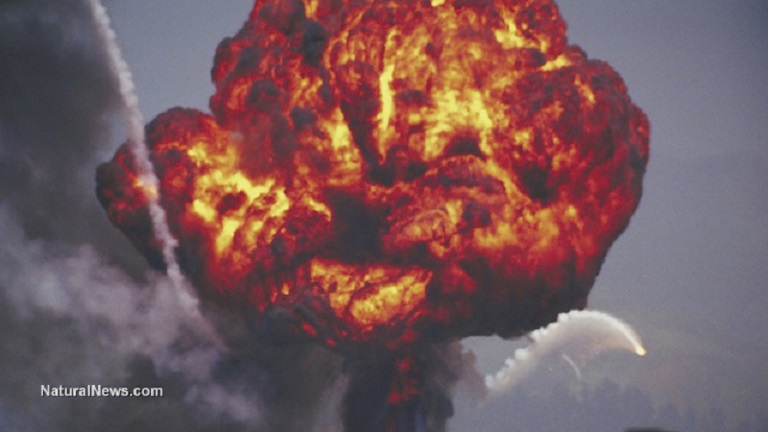Doctors Without Borders bombed by the Pentagon opposed the TPP, pharma monopolies
10/27/2015 / By davehodgesnews

In recent months, before the charitable medical organization Doctors Without Borders was in the news for having one of its clinics bombed in Afghanistan, reports noted that the group was opposed to the Trans-Pacific Partnership (TPP), a massive 12-nation “free trade” treaty that is on the cusp of finally being approved by all parties.
The trade pact, which involves the U.S., Japan and 10 other Pacific Rim countries, is high on President Obama’s final term “to-do list,” as his administration has been negotiating it for the past five years.
As Natural News has previously reported, we are opposed to the deal because: 1) it would likely ban GMO labeling laws in the U.S. and 11 other countries; and 2) it would permit the marketing of dangerous Big Pharma drugs to Americans.
Open and public opposition
Doctors Without Borders says it opposed the TPP because it will make the import and export of cheaper generic medications nearly impossible, feeding Big Pharma and thereby raising the cost of care for millions of people.
“But right now the U.S. government is advocating for trade terms with eleven other Pacific Rim nations that could restrict access to generic medicines, making life-saving treatments unaffordable to millions,” the group says on its website.
“Damaging intellectual property rules in the U.S.-led Trans-Pacific Partnership Agreement (TPP) would give pharmaceutical companies longer monopolies over brand name drugs. Companies would be able to charge high prices for longer periods of time. And it would be much harder for generic companies to produce cheaper drugs that are vital to people’s health,” the group added.
Did the organization just get punished for this stance in Afghanistan? That’s a question posed by The Anti Media news and information site’s Claire Bernish.
“Harsh criticism and skepticism surround what is being labeled an errant U.S. bombardment of a hospital in Kunduz that left 22 people dead — many of them volunteers with Medecins sans Frontieres (Doctors without Borders, the humanitarian aid agency) — but doubt lingers about the vague official story for a reason,” she reports.
Many Afghans and others on the ground in Kunduz questioned the bombing, noting that the accuracy of U.S. targeting and weapons systems is quite good — good enough, even, to target an enemy in a moving vehicle. So how could the U.S. have mistakenly bombed a hospital containing personnel belonging to a respected Nobel Prize-winning organization that is openly opposed to one of President Obama’s political priorities?
Christopher Stokes, the director of Medecins sans Frontieres (MSF) called the strike a war crime and said that “relying only on an internal investigation by a party to the conflict would be wholly insufficient,” The Guardian reported.
“Coincidence?”
As reported by The Washington Post, Hamdullah Danishi, the acting governor of Kunduz, said, “The hospital campus was 100% used by the Taliban. The hospital has a vast garden, and the Taliban were there. We tolerated their firing for some time.”
But Stokes did not accept that. He said: “Not a single member of our staff reported any fighting inside the MSF hospital compound prior to the U.S. airstrike…”
What’s more, Stokes and others on the scene said that the attack took place over a prolonged period of time, and it just happened to coincide both with the reaching of an agreement among the TPP’s 12 nations and a Taliban attack on the city of Kunduz (which Afghan forces eventually beat back).
“In the case of MSF, a massive treaty cum trade deal involving U.S. interests in another part of the world from the tragedy in Kunduz can offer, perhaps, insight which might otherwise seem unrelated,” Bernish wrote. “As it turns out, MSF have been particularly vocal critics of the impending Trans-Pacific Partnership — and their criticism hasn’t gone unnoticed.”
Sources:
WashingtonPost.com
DoctorsWithoutBorders.org
TheDailySheeple.com
TheGuardian.com
WashingtonPost.com
Tagged Under:





















